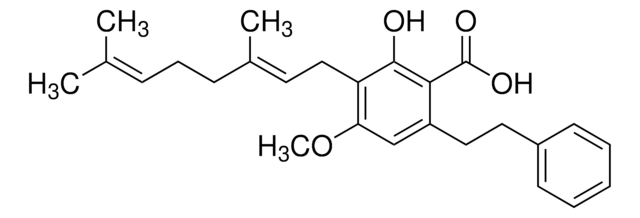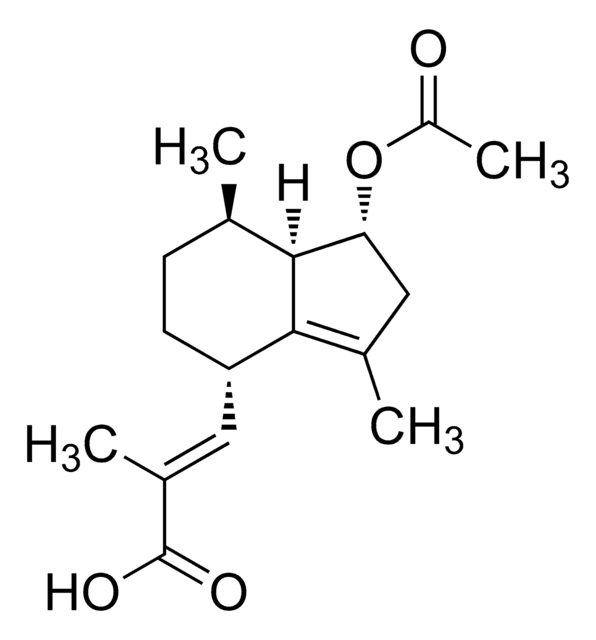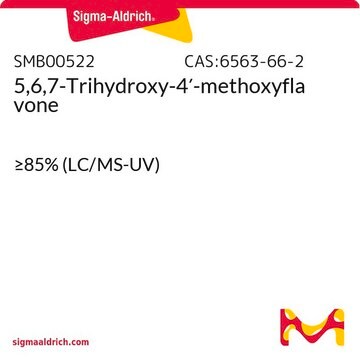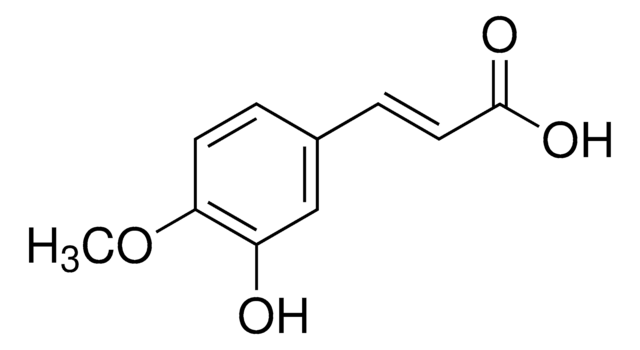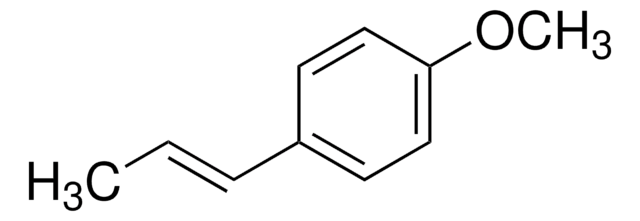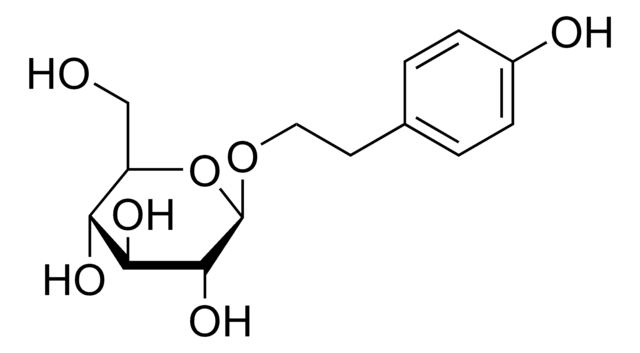SMB01019
Amorfrutin A
≥90% (LC/MS-ELSD)
Synonym(s):
2-hydroxy-4-methoxy-3-(3-methylbut-2-enyl)-6-(2-phenylethyl)benzoic acid, 3-hydroxy-4-isopentenyl-5-methoxybibenzyl-2-carboxylic acid
About This Item
Recommended Products
biological source
plant
Assay
≥90% (LC/MS-ELSD)
form
solid
mol wt
340.41
solubility
water: slightly soluble
application(s)
metabolomics
vitamins, nutraceuticals, and natural products
storage temp.
−20°C
SMILES string
O(C)c1c(c(c(c(c1)CCc2ccccc2)C(=O)O)O)CC=C(C)C
InChI
1S/C21H24O4/c1-14(2)9-12-17-18(25-3)13-16(19(20(17)22)21(23)24)11-10-15-7-5-4-6-8-15/h4-9,13,22H,10-12H2,1-3H3,(H,23,24)
InChI key
CTNFTPUIYFUXBE-UHFFFAOYSA-N
Related Categories
General description
Application
Biochem/physiol Actions
Features and Benefits
- High quality compound suitable for multiple research applications
- Compatible with HPLC and mass spectrometry techniques
Other Notes
Storage Class Code
11 - Combustible Solids
WGK
WGK 3
Flash Point(F)
Not applicable
Flash Point(C)
Not applicable
Regulatory Listings
Regulatory Listings are mainly provided for chemical products. Only limited information can be provided here for non-chemical products. No entry means none of the components are listed. It is the user’s obligation to ensure the safe and legal use of the product.
JAN Code
SMB01019-1MG:
Choose from one of the most recent versions:
Certificates of Analysis (COA)
Sorry, we don't have COAs for this product available online at this time.
If you need assistance, please contact Customer Support.
Already Own This Product?
Find documentation for the products that you have recently purchased in the Document Library.
Our team of scientists has experience in all areas of research including Life Science, Material Science, Chemical Synthesis, Chromatography, Analytical and many others.
Contact Technical Service